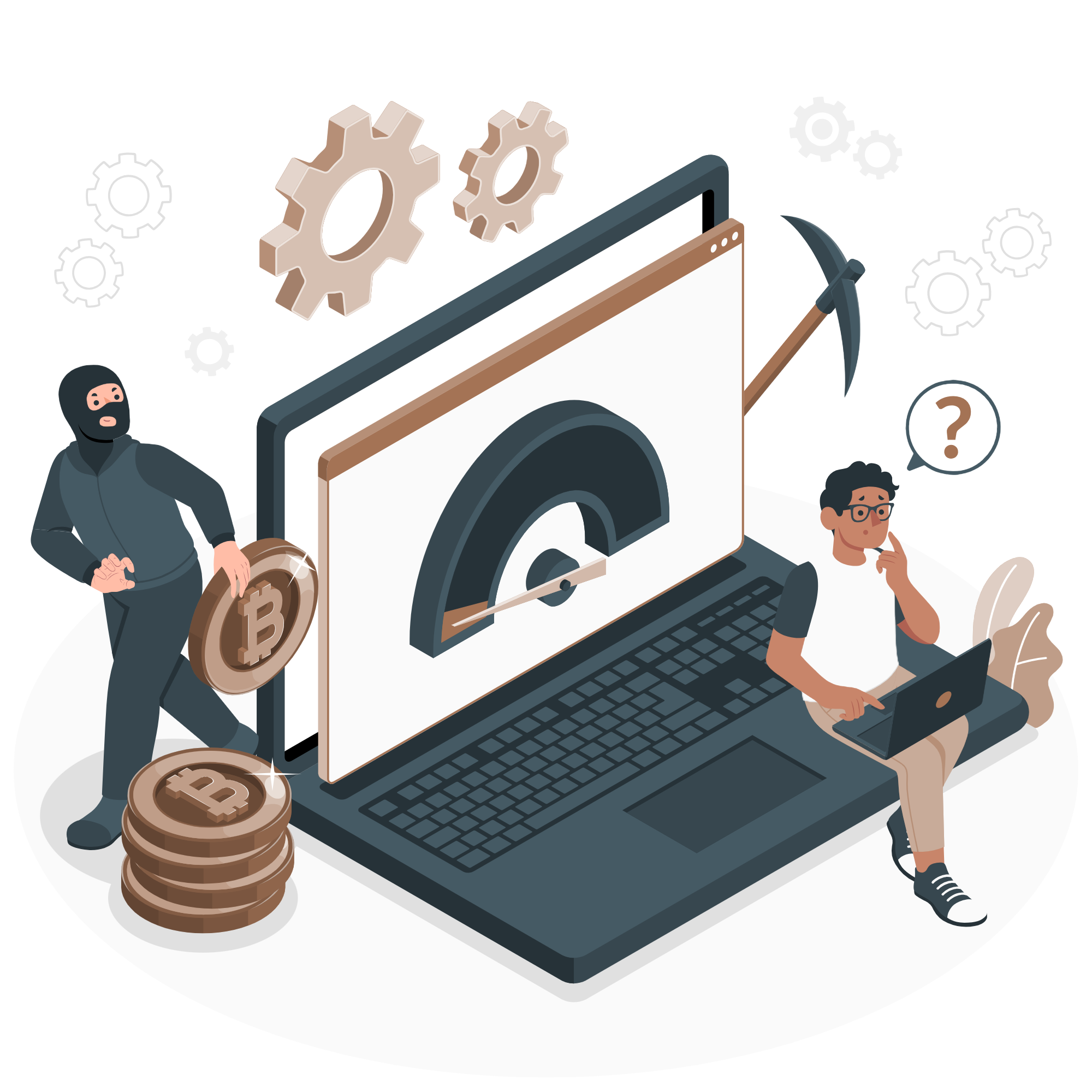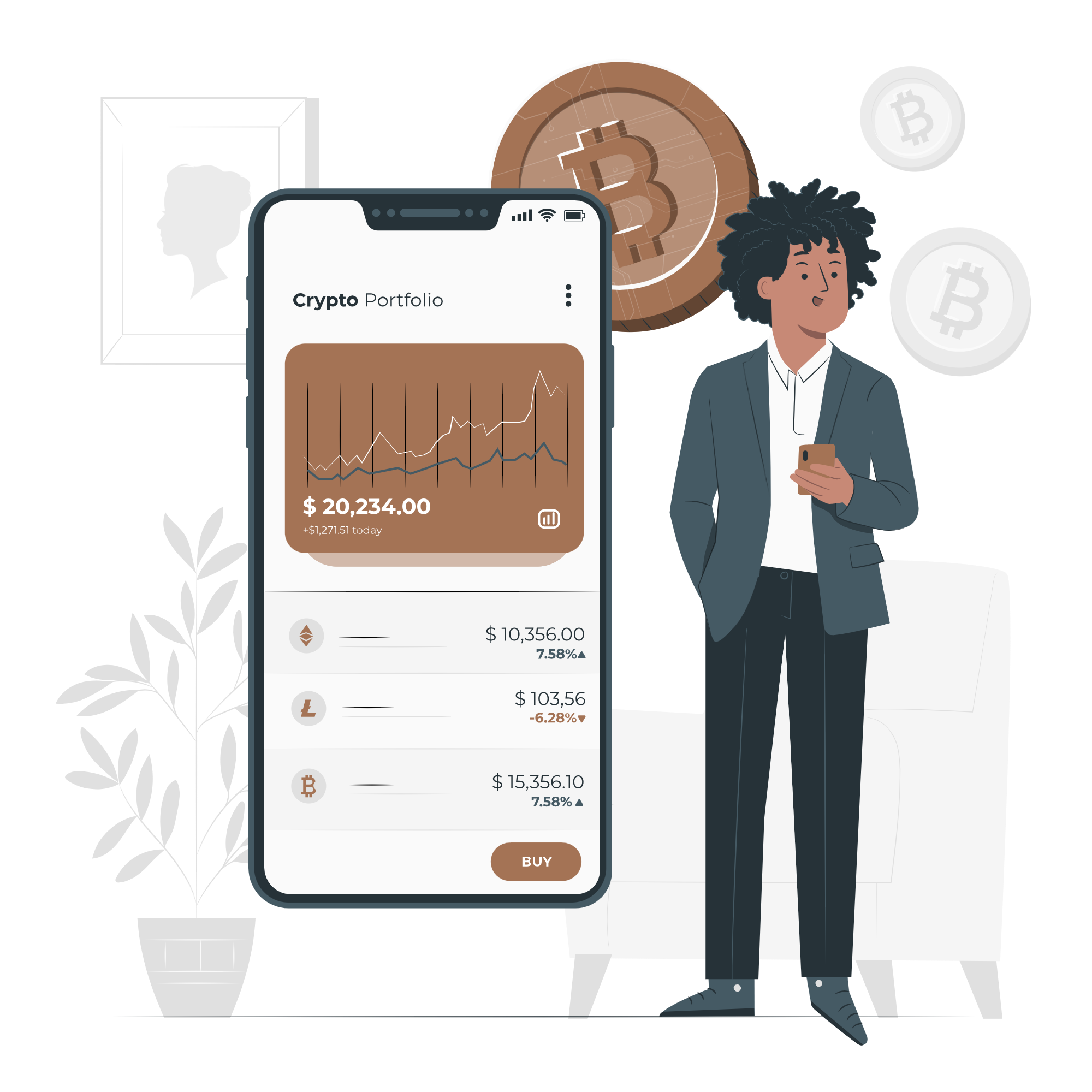




Your one-stop guide to all things crypto. Whether you're a rookie trying to understand mining or a veteran looking to develop a trading strategy, we've got you covered.


The Academy is an educational hub dedicated to empowering users with a comprehensive understanding of cryptocurrency, blockchain technology, and financial literacy. Through online training modules and live webinars, users can learn at their own pace while staying up-to-date with industry trends. Our expert instructors guide learners through a curriculum featuring interactive tools, certification programs, and practical application guides. The Academy fosters a supportive community, providing networking opportunities for users to connect with industry professionals.


Cryptocurrencies are digital tokens. They are a type of digital currency that allows people to make payments directly to each other through an online system. Cryptocurrencies have no legislated or intrinsic value; they are simply worth what people are willing to pay for them in the market.
Cryptocurrencies exist only in electronic form and have no physical counterparts like coins or banknotes. They are purely digital assets.
Cryptocurrencies use cryptographic techniques to secure transactions and control the creation of new units. This ensures the integrity and security of the currency and enables participants to have secure control over their digital assets.
Unlike traditional currencies issued by governments and central banks, cryptocurrencies operate on decentralized networks. These networks are typically based on a technology called blockchain.


Blockchain is a decentralized and distributed digital ledger technology that enables secure and transparent record-keeping of transactions across a network of computers. The basic idea behind blockchain is to create a tamper-resistant and trustless system where multiple parties can interact and transact without the need for a central authority.
Unlike traditional centralized systems where a single authority controls the entire network, blockchain distributes control across multiple nodes (computers) that participate in the network. This decentralization reduces the risk of a single point of failure and enhances security.
Once a block of data is added to the blockchain, it is extremely difficult to alter or delete. Each block contains a cryptographic hash of the previous block, creating a chain of blocks. Any change in a block would require the consensus of the majority of the network, making the blockchain resistant to tampering.
Blockchain networks use consensus algorithms to agree on the state of the ledger and validate transactions. Common consensus mechanisms include Proof of Work (used in Bitcoin) and Proof of Stake.
Build your blockchain knowledge, complete quizzes, and earn free crypto.
Certain platforms offer educational content about blockchain and cryptocurrency and reward users with tokens for completing courses or quizzes. These platforms aim to encourage learning and understanding within the community.
Blockchain projects sometimes create bounty programs or challenges that involve spreading awareness about their technology. This could include creating content, participating in discussions, or completing tasks related to education and community engagement.

If you're specifically interested in how to coach individuals involved in the cryptocurrency space, here are some considerations you might explore:
Evaluate the client's understanding of blockchain, cryptocurrencies, and their industry involvement.
Discuss potential mentorship programs or connections within the cryptocurrency community.
Identify sources of motivation within the cryptocurrency industry and connect them to personal goals.
Provide a safe space for the client to discuss emotional challenges related to both personal and professional aspects.



Morrow Academy provides on-site cryptocurrency and blockchain training for organizations. Our team of experts is available to teach your employees, students, or any other group about a wide range of topics related to digital assets. We are also available for presentations and panels at conferences.

Learn how to write blockchain programmes, smart contracts and build your own
DApps.

Have you been wondering how you can trade cryptocurrencies with the right tools and risk mitigation techniques?

Learn how to earn from playing games, spending your time online in one week. Web3 is here to stay and e are here to show you how.


Cryptocurrencies have gained immense popularity as digital assets that can be bought, sold, and traded on various online platforms called cryptocurrency exchanges. Whether you're a novice exploring the world of digital currencies or an experienced trader, understanding the processes of buying and selling cryptocurrencies is essential. This comprehensive guide will walk you through the step-by-step procedures, best practices, and key considerations.



Here's a set of frequently asked questions (FAQs) along with brief answers in the context of cryptocurrency life coaching.
Cryptocurrency is a type of digital or virtual currency that uses cryptography for security and operates on decentralized networks, typically based on blockchain technology.
Blockchain is a decentralized ledger that records all transactions across a network of computers. In cryptocurrency, each transaction is added as a block to a chain, creating a secure and transparent record.
You can buy cryptocurrency on online platforms known as cryptocurrency exchanges. Common steps include creating an account, depositing funds, and making a purchase.
Cryptocurrency legality varies by country. In many places, it is legal, but regulatory environments differ. Always check local regulations to ensure compliance.
A cryptocurrency wallet is a digital tool that allows you to store and manage your cryptocurrencies. It's essential for securely storing your private keys. You need a wallet to send, receive, and store cryptocurrencies.
